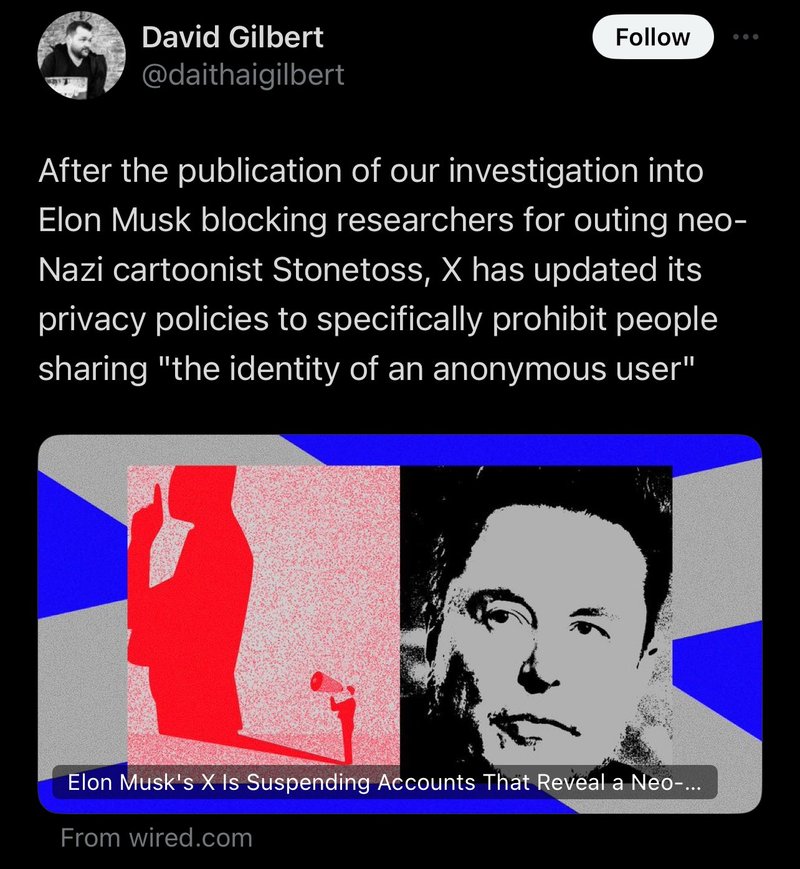Twitter Updates Its Privacy Policy, With Many Speculating It's In Response To The Stonetoss Doxxing

Twitter has once again courted controversy with a policy update that to some appears designed to protect right-wing extremists on the app, setting off another wave of discourse in recent days.
Earlier this week, Twitter, or X, updated its privacy policy to ban the revealing of a person's name if it is not publically available on the app. "The identity of an anonymous user, such as their name or media depicting them" is now a protected item on Twitter if it deems that information is shared "with abusive intent, or to harass another person."
While not directly referenced in the update, many online have speculated it was made due to the recent and highly publicized doxxing of StoneToss by an Antifa collective.
Last week, the group used a mix of articles and social media post history to suggest that the name of the controversial webcomic artist was someone named "Hans Kristian Graebener." Technically, they did so without using information that was not public and did not post Graebener's address or other personal details, nor did they post pictures that weren't on Graebener's social media accounts.
However, they were still banned from the platform, prompting a piece in Wired about Twitter's perceived scramble to stem the spread of information released in the StoneToss dox. The day after that story was published, Twitter updated its privacy policy.

Many believe the timing of this new rule indicated that it will be applied selectively to protect right-wing extremists and figures online, though this is merely conjecture. They argued that the practice of revealing someone's anonymous identity with the intent to court harassment has been liberally practiced by accounts including LibsOfTikTok and Andy Ngo for years while Twitter did not punish them.
For example, in early October, Ngo published the name and state of Juniper, a popular left-wing irony account, which had been posted on the app previously by two other accounts with smaller followings, though they did not mention the state of residence.

The update was perceived by many on the platform to be further proof of Elon Musk's supposed whims towards making Twitter a hub for right-wing ideas in contrast to his stated commitment to "free speech."


Meanwhile, on Tuesday, Musk shared yet another video that critics have argued pushes the Great Replacement Theory. In November, he caused advertisers to back out of Twitter by amplifying a Great Replacement Theory conspiracist.
Editor's Note: A small portion of this article was edited on March 25th to provide clarification on a statement made.




Comments ( 4 )
Sorry, but you must activate your account to post a comment.
Please check your email for your activation code.